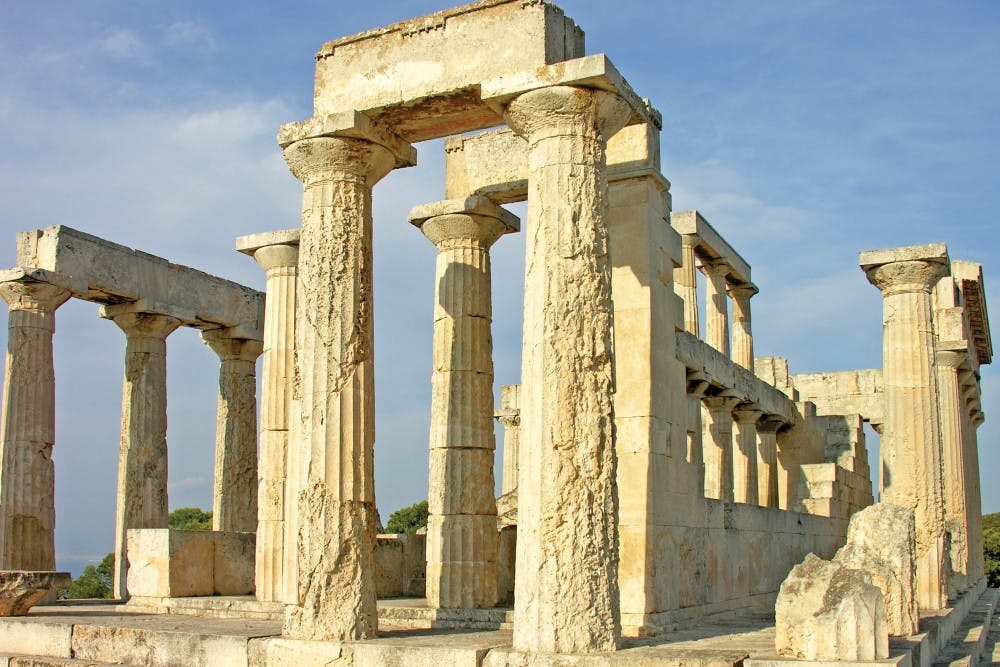
In what is shaping up to be the most important week in Greece’s odyssey of debt and economic dysfunction, Prime Minister Alexis Tsipras — the country’s leader— is expected to submit serious reform proposals to European leaders today.
The Balkan country’s future will continue to be on the line this week and with it, the futures of its citizens — including those of Penn students from Greece.
History was made on Sunday when the Greek government held a referendum asking voters whether or not they wanted to accept creditors’ latest deal, which would have imposed greater austerity measures. An overwhelming 61 percent of Greeks voted “no,” a sweeping victory for Tsipras and his left-wing Syriza Party.
“While the ballots were being counted and we were waiting for the final count, you could almost see the country holding its breath. People would either fight — among family or even strangers in public spaces — or be eerily silent and anxious,” said Irene Katopodis, a 2015 College graduate who voted “yes” in Sunday’s referendum.
Contrary to the country’s referendum results, Penn students from Greece that The Daily Pennsylvanian interviewed overwhelmingly supported accepting the creditors’ offer.
13 of the 14 Greek students interviewed by the DP favored a “yes” vote.
“I voted and I voted for ‘yes’, because saying ‘no’ to me has no logic behind it,” said Vasiliki Papanikolopoulos, a rising Engineering senior studying chemical engineering at Penn. The “no” vote “is driven by pride and the desire to not be told what to do by others. But for Greece to do what it has needed to do for all these years, there needs to be a government that believes it and wants it desperately.”
Out of the 14 Penn students polled, eight were not able to vote because they were not in the country at the time. Most students believe that the reason behind Greek Penn students’ differing opinion is mostly due to demographics, socioeconomic standing and degree of education.
“The background of the people that actually come to study at Penn from Greece is extremely different than the majority of the population. Families that can actually afford an education like the one Penn provides are not even a statistically significant figure amongst the Greek population at this point,” said Leonidas Lampropoulos, a third year computer science Ph.D candidate from Athens. “And if you look at statistics, high-middle to upper class Greeks were vastly in favor of ‘yes.’”
The referendum’s results triggered the possibility of Greece defaulting, collapsing financially, removing the euro as its currency and leaving the European Union.
With Greek banks running out of cash, citizens were imposed with a withdrawal limit of 60 euros per account daily on June 29, according to an Al-Jazeera article from Tuesday.
One Greek student from Penn — who preferred to be kept anonymous — told the DP that he had to withdraw money in the United States for his family before returning to Greece due to the capital controls.
For some Penn students, these recent government measures have caused financial uncertainty.
“My own daily life has been affected in the sense that everything around me is uncertain,” said Papanikolopoulos. “My internship is affected as the future of the business is uncertain, so operations have been impacted. The people around me are worried about their futures in the country. Stores don’t have change when you give them a large bill due to the capital controls.”
The Greek financial crisis is on target to reach what seems like — since 2010 — a never-ending culmination for European leaders and lenders. The country was temporarily saved from financial calamity five years ago when the the International Monetary Fund, the European Central Bank and the European Commission issued Greece a multibillion euro bailout package subject to strict austerity measures.
Greece’s situation has worsened since. Unemployment is above 25 percent and its economy has shrunk by a quarter in the last five years, per a CNN report.
With a $3.9 billion payment due to the ECB on July 20, all 28 members of the European Union will meet on Sunday to decide Greece’s fate.
The BBC reported three possible scenarios as likely to occur: The negotiations between Greece and its creditors could fall apart, forcing Greece to exit the eurozone; the Greek banks could collapse, forcing a “Grexit” or a eurozone rescue deal; or, the flailing country could reach a revised deal with European leaders in order to ease Greece’s financial burden.
“No one wants a Grexit. If [Tsipras] goes in that direction on purpose, then he is just as bad as every corrupt, self-serving politician we have had so far, if not much, much worse,” said Katopodis. “We need to stay in the eurozone and find a deal that pleases the European Commission, but is also feasible for us as a country.”
With a referendum mandate, Tsipras is expected to announce Greece’s latest proposals to European leaders today.
“Right now, there is no chance I’ll return right away, and probably not for a few years, since I doubt things will stop going downhill,” said Lampropoulos. “Eventually, I see myself going back, but that is very contingent on being able to find something to actually do there.”
Others are more willing to face the sacrifices associated with bringing a country back to its feet.
“I just moved here despite the warnings that I should not, and I do not regret it. Perhaps it is because I am young and naive, but perhaps my positive energy is exactly what this country needs. I am looking to become more involved in the international relations of Greece and do my part in bringing this country back to where is rightfully its place,” said Katopodis.
The Daily Pennsylvanian is an independent, student-run newspaper. Please consider making a donation to support the coverage that shapes the University. Your generosity ensures a future of strong journalism at Penn.
DonatePlease note All comments are eligible for publication in The Daily Pennsylvanian.





